
The recently-announced Music Way Project will drive Japan's music industry's globalization and sustainable growth. We look at the reasons behind the Toyota Group's involvement.

On February 25, the Japan Culture and Entertainment Industry Promotion Association (CEIPA) and the Toyota Group announced the launch of the Music Way Project. This collaboration will drive the global and sustainable growth of Japan’s music industry.
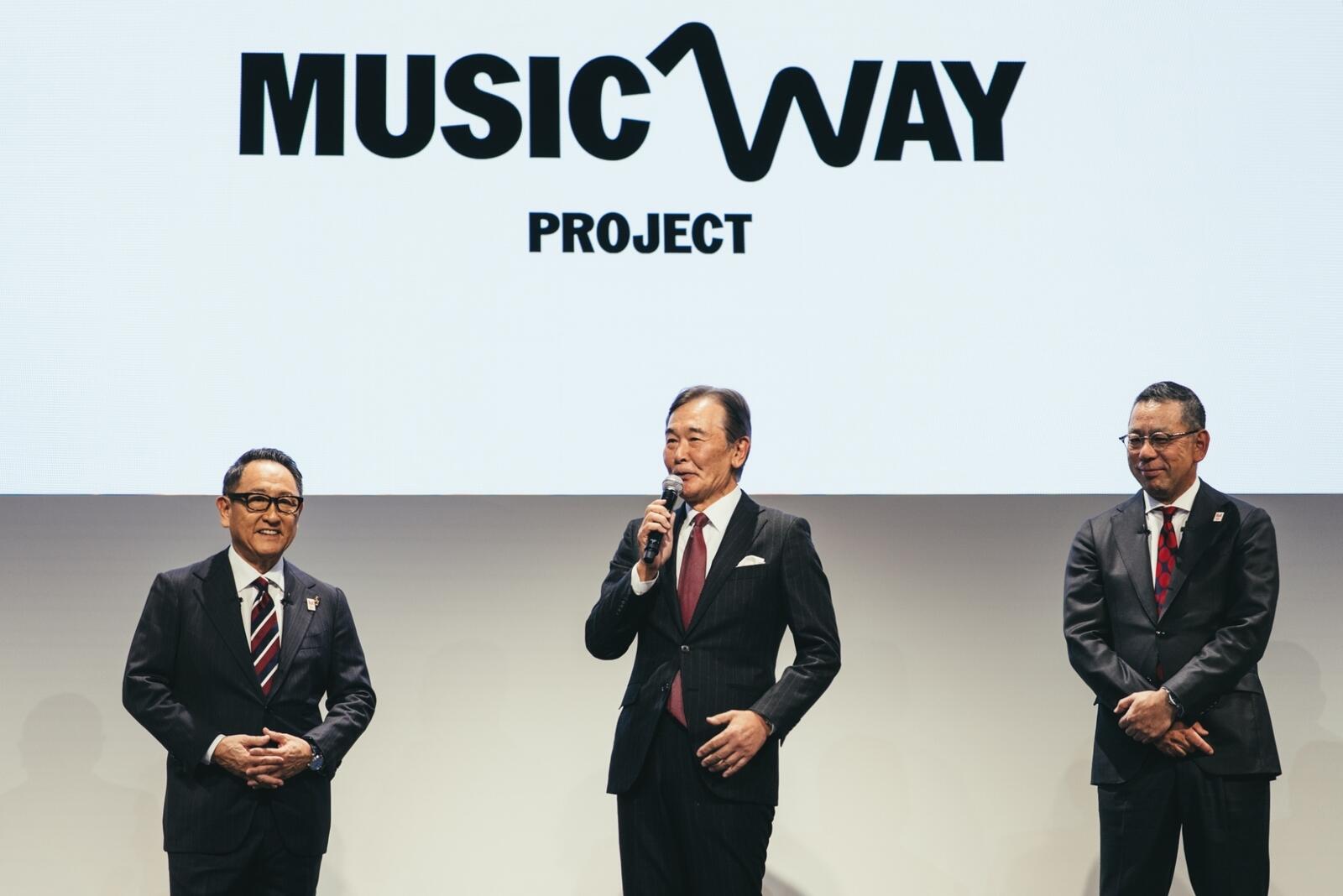
CEIPA* was set up to promote Japan’s music and entertainment industry to the world. The association’s work includes digitization and the development of talent in the country’s arts and cultural industries.
*Composed of five organizations: the Recording Industry Association of Japan, Japan Association of Music Enterprises, Federation of Music Producers Japan, Music Publishers Association of Japan, and the All Japan Concert and Live Entertainment Promoters Conference.
The press conference unveiling the project featured three speakers: CEIPA Chair of the Board Shunsuke Muramatsu, Commissioner for Cultural Affairs Shunichi Tokura, and Chairman Akio Toyoda representing the Toyota Group.
Why has the Toyota Group, which seemingly has little connection with music, set out to support Japan’s entertainment industry?
Paving the way for Japanese music
Under the slogan “Japanese music drives the world,” the Music Way Project will focus on nurturing talent and creating opportunities for musicians who have set their sights on the world stage.
The project will seek to hone talent for international success by funding student courses, training young musicians, and holding workshops with creators.
In terms of creating opportunities, the Music Way Project will provide platforms for artists through collaborations with the Toyota Group’s global facilities, including the Toyota Arena Tokyo, scheduled to open this fall.
At the press conference, CEIPA Chair Shunsuke Muramatsu spoke of his commitment to supporting artists, saying, “Japan has many young artists with the talent to entertain the world, but the world has yet to discover them. …We want to prepare a path for the young people who will pave the way for the future of Japanese music to connect across borders.”
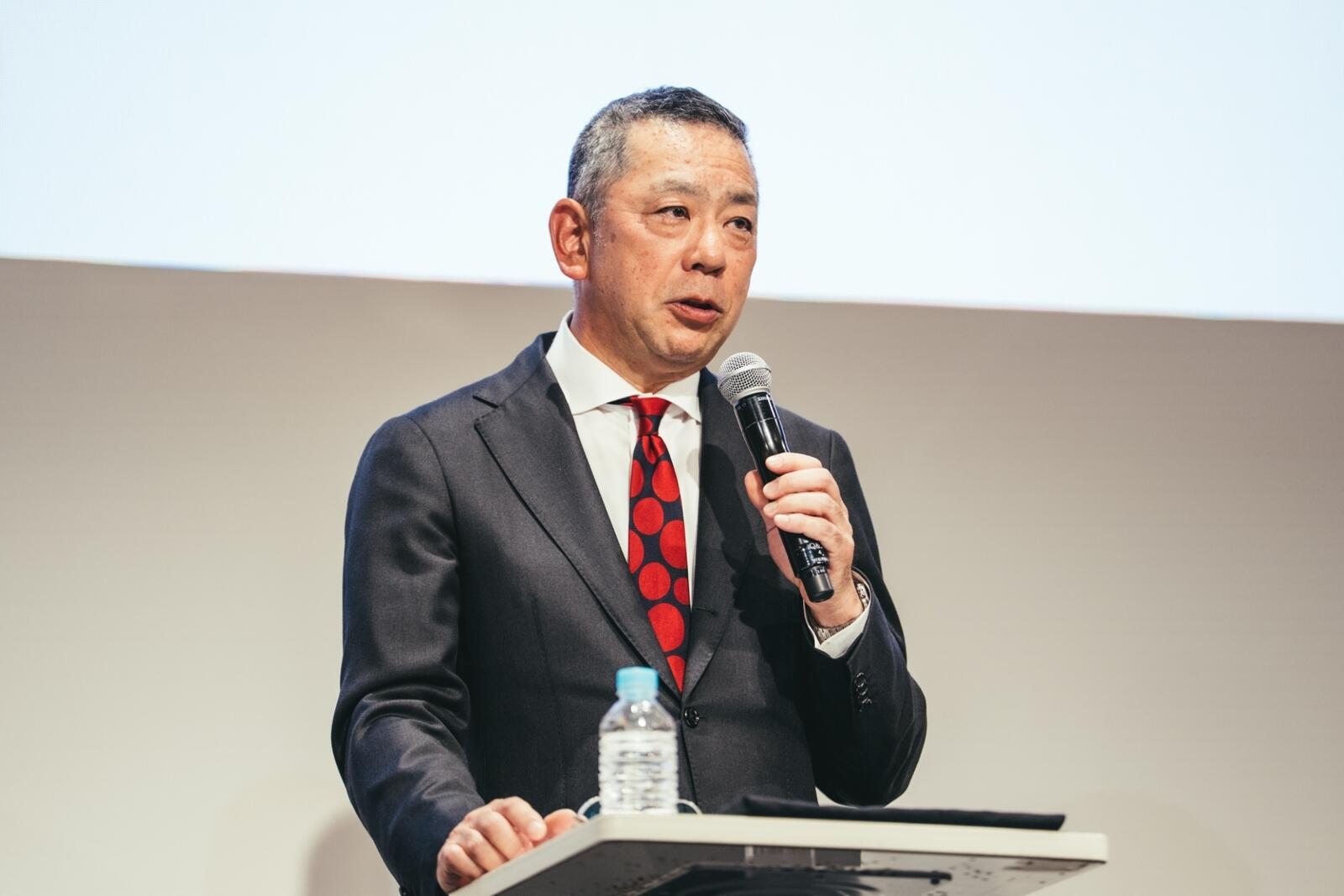
Driven by love for Japan
In his speech, Chairman Toyoda explained that his support for the collaborative project was rooted in “my love for Japan.”
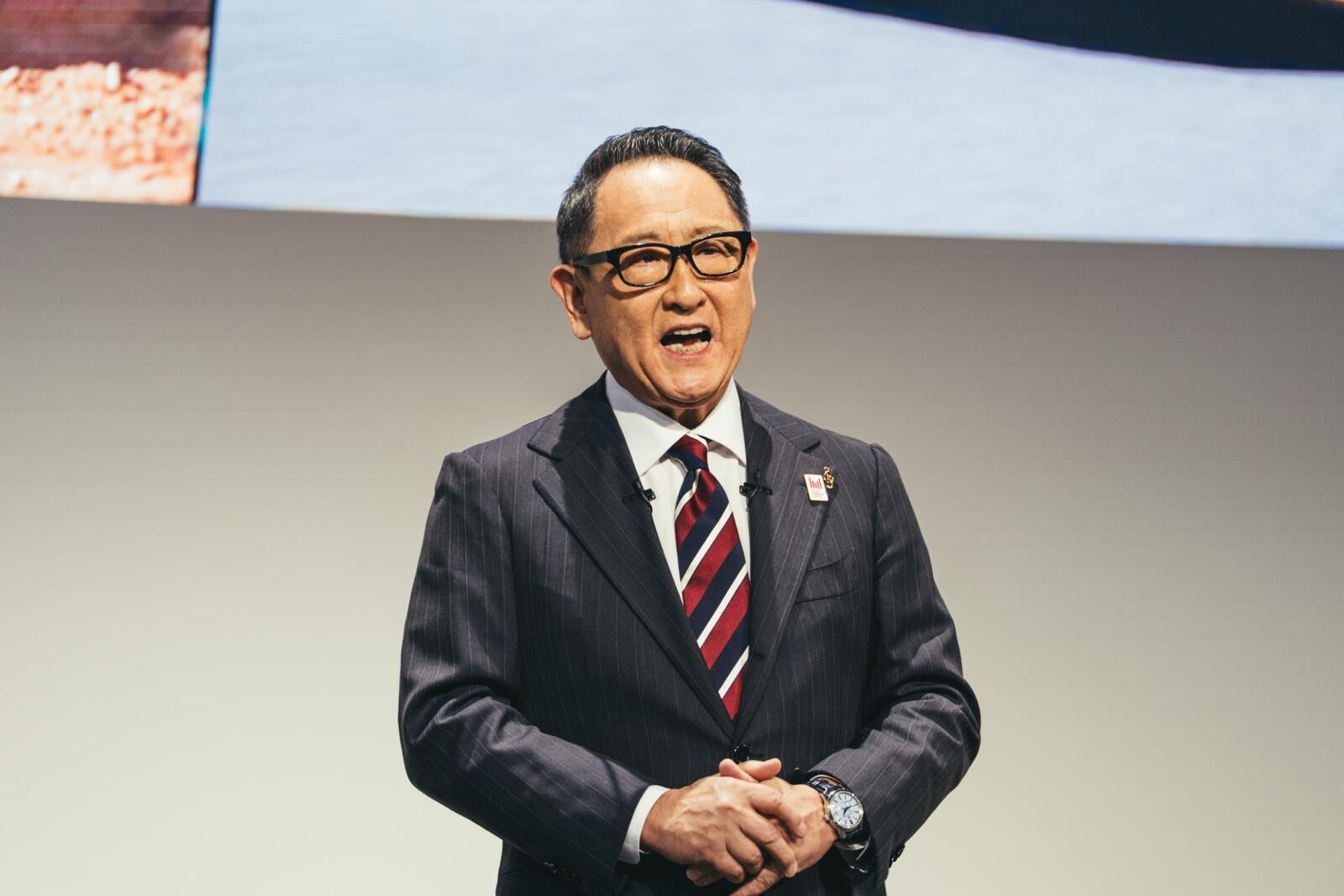
Indeed, this passion for Japan could be seen during Akio’s time as president, when, faced with an ultra-strong yen and widespread opposition, he committed to keeping Toyota’s domestic plants running to maintain the country’s competitiveness.
Given his strong love for Japan, Chairman Toyoda remarked that, “Whenever I see Japanese people who want to take on the world, I can't help but cheer them on.” Akio spoke of the excitement he feels at seeing Japan’s young people succeed on the global stage, mentioning the names of basketball player Rui Hachimura and actor Anna Sawai.
Chairman Toyoda learned of the project and decided to offer support after meeting people from CEIPA and Commissioner for Cultural Affairs Shunichi Tokura. It was then that he realized “Japanese entertainment is also trying to compete globally for Japan.”
What Toyota can learn from music
Chairman Toyoda added that, like music, cars also have stories and an emotional appeal which cannot be quantified.
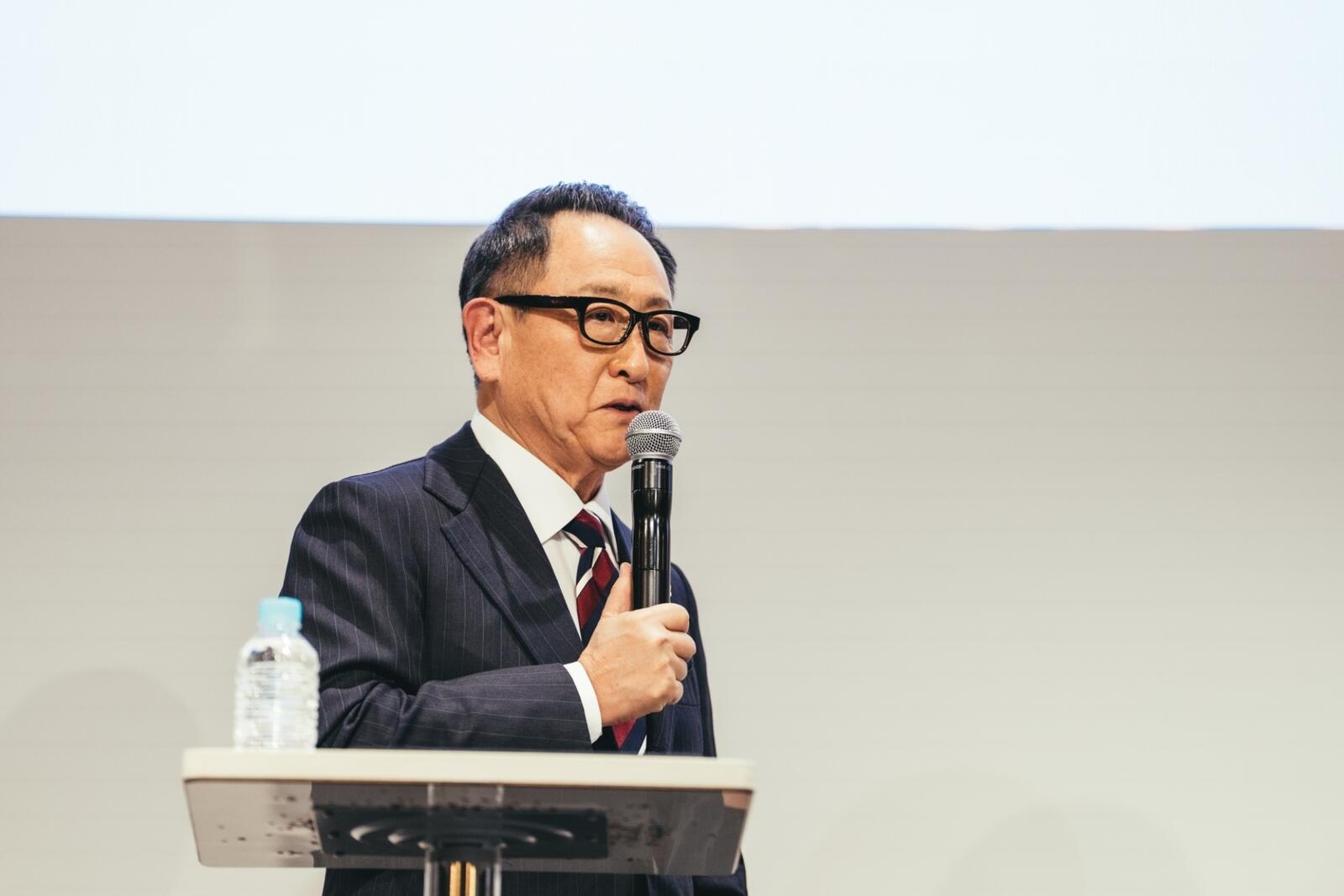
Prior to Akio’s involvement in carmaking as a master driver, at Toyota the quality of a car tended to be judged by its specs.
By contrast, recent launches for new Toyota models have focused more on telling stories.
The story of the GR Yaris involved the master driver himself behind the wheel, honing the car by pushing it to breaking point, fixing, and repeating.
For the latest Prius, the story was shaped by engineers who, despite then-President Toyoda’s suggestion of a dedicated taxi model, were eager to create a more emotional experience.
Meanwhile, the 16th generation Crown’s four body variations were born out of a desire to challenge the routine model updates being made every few years.
Each of these unique stories adds to the cars’ appeal.
At the same time, cars are also industrial products that must be made uniformly. In music, on the other hand, despite the countless tunes that exist, no two songs are alike. Each is imbued with its own story.
“Every listener has their own personal stories and memories attached to each song,” noted Chairman Toyoda, emphasizing that this project is not simply about supporting the music industry, but also about learning from it. “I want to make cars connect with people on a more emotional level. I believe that Toyota has much more to learn from music.”
Why the Toyota Group?
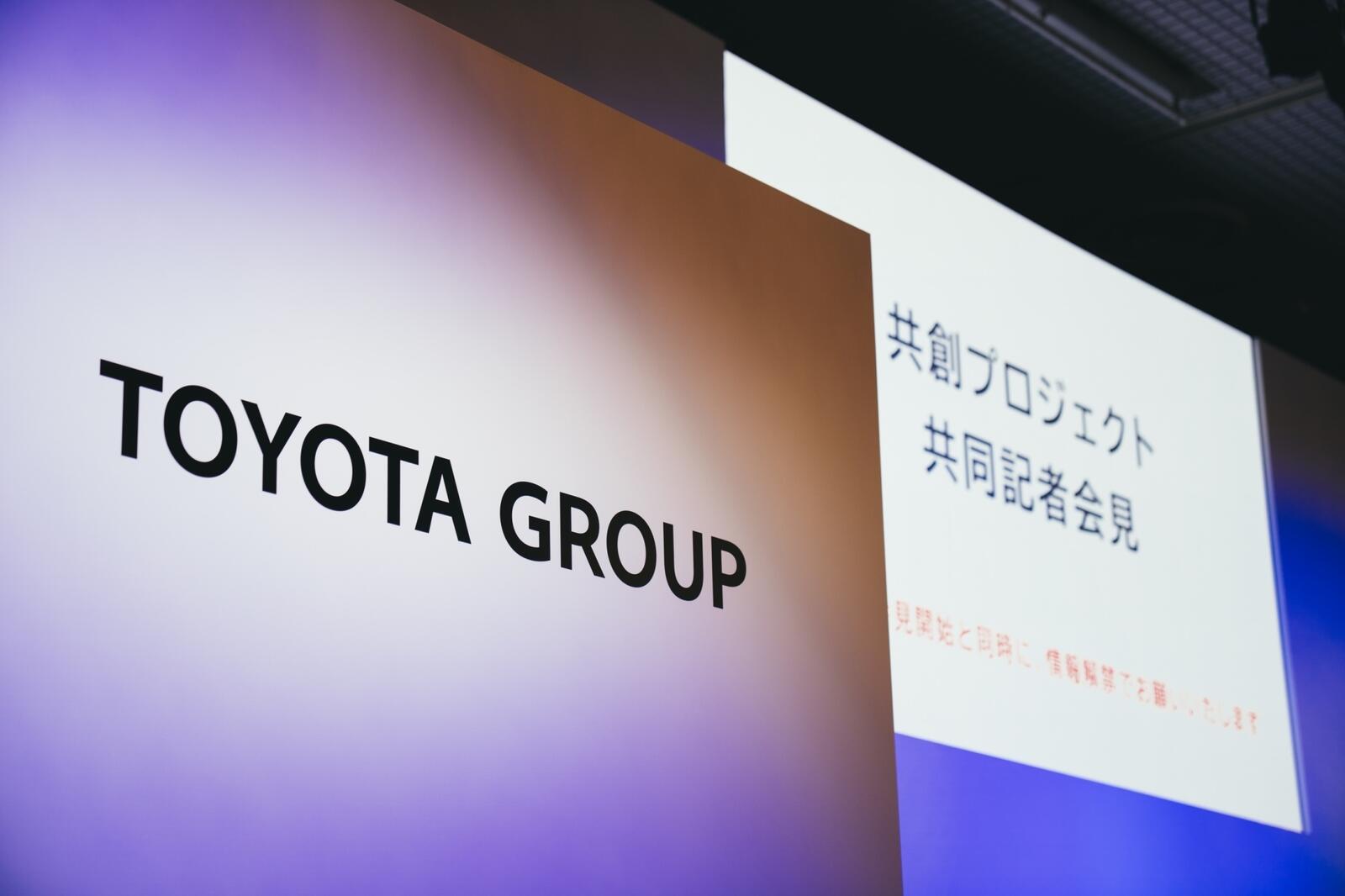
Chairman Toyoda also responded to the question of why Toyota had decided to join the project as a group, rather than just the carmaker.
“Neither I nor the Toyota Group give off a ‘cultured’ air, do we? I think we can be more genuinely helpful if we don’t try to look like we know about cultural things.
“The Toyota Group has many different facilities around the world, each with its own partners. Working together, I think we can do a lot to nurture talent and create opportunities.”
Sharing Japanese music with the world
After the presentations by Chair of the Board Muramatsu and Chairman Toyoda, Commissioner Tokura took the stage. For him, creating a support team to help artists spread their wings overseas had been a long-held ambition.
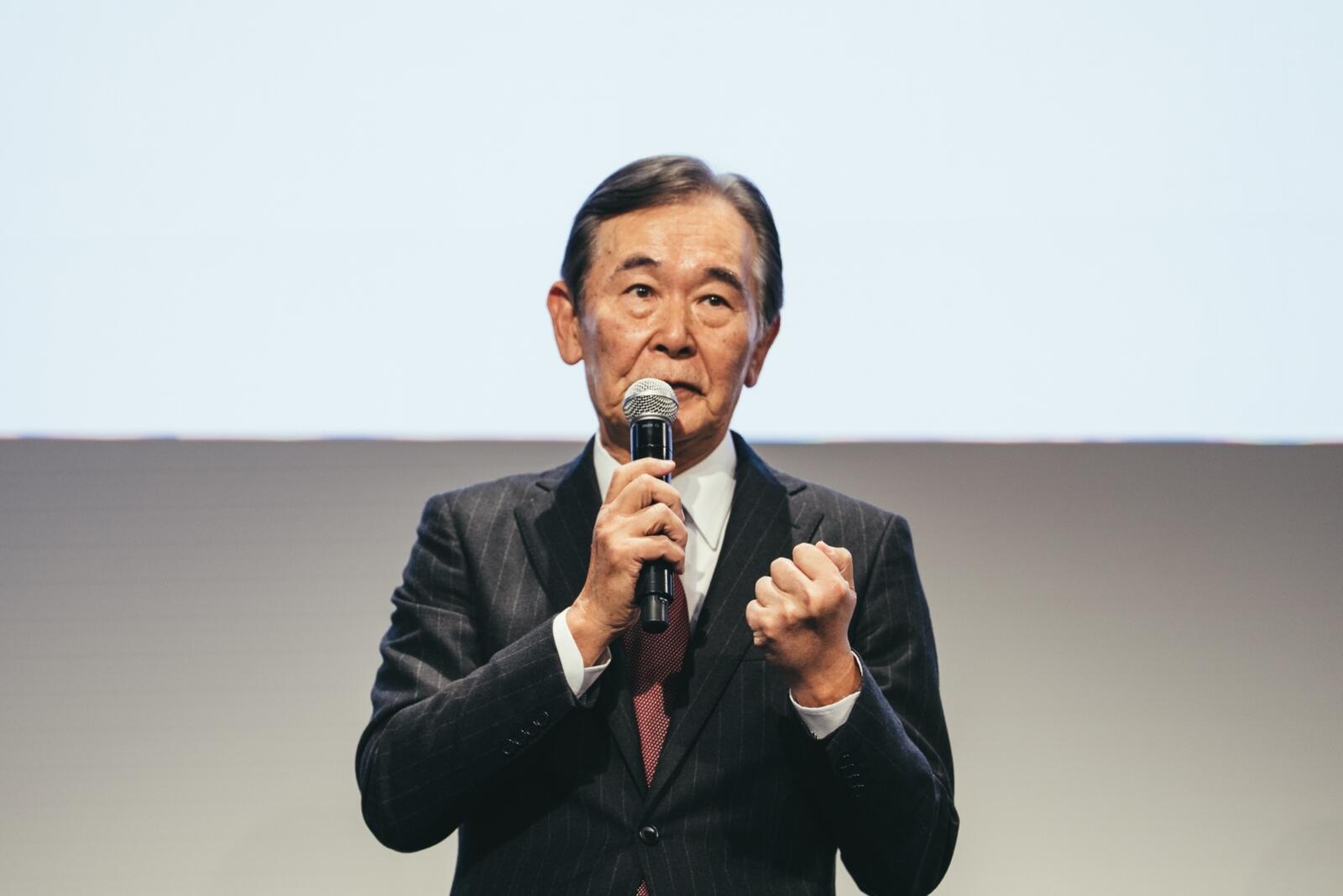
During his five-decade career as a composer, Shunichi Tokura has worked on many hit songs, including Pink Lady’s “UFO” and “Dounimo Tomaranai” by Linda Yamamoto.
“Until now, musicians had no support team. I want to create the shortest possible route for young artists to share their incredible work and energy with the world.”
“Simply being able to provide this kind of opportunity for Japan’s music industry fills me with pride. Back in our time, if you looked behind you, no one was there—everyone was going it alone.”
Reflecting on the hardships faced by past generations of musicians, Commissioner Tokura placed his hopes in this new beginning for Japan’s entertainment industry.
Below, we share the full text of Chairman Toyoda’s speech, outlining the considerations that led to this decision.

